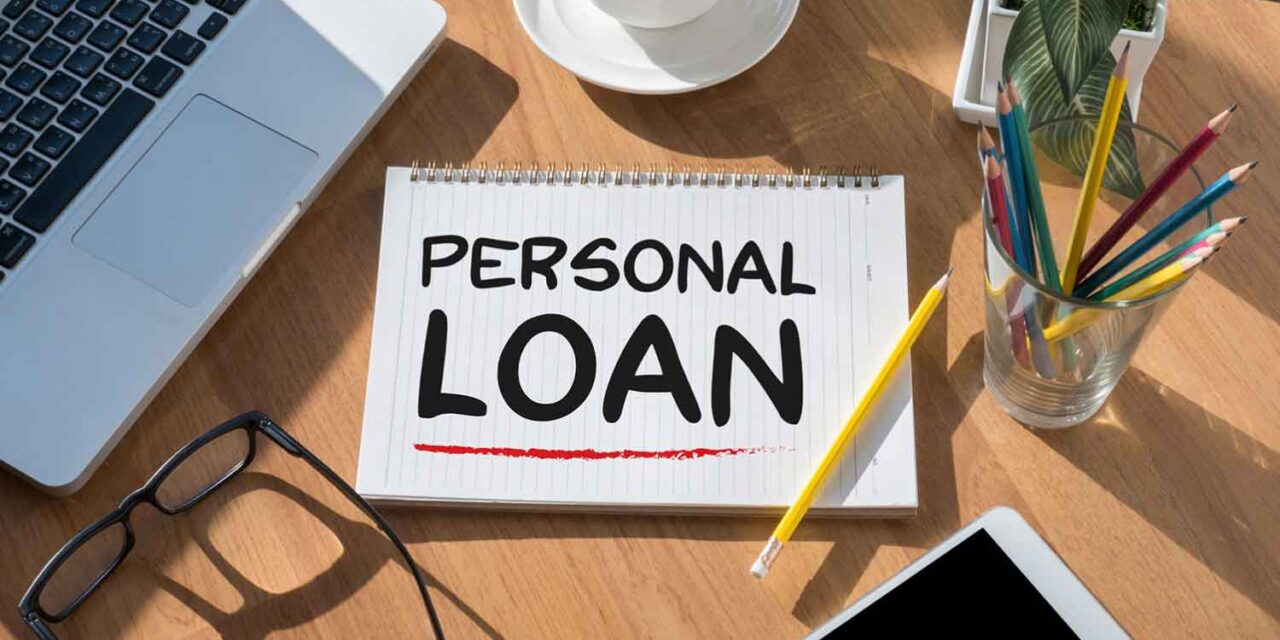When seeking a personal loan in the UAE, it’s essential to find the best bank suiting your financial needs and goals. As I explored the UAE banking landscape, I discovered that each bank offers different personal loan products with varying terms and interest rates. To make the most informed decision, it’s crucial to compare these offerings and choose a bank that provides the ideal personal loan solution.
In my research, I came across leading banks such as Dubai Islamic Bank, First Abu Dhabi Bank, and ADCB offering competitive personal loan offers for UAE nationals and expatriates alike. The interest rates can start as low as 3.99% p.a. (reducing) or 2.19% p.a. (fixed), with some banks even offering loans without salary transfer requirements. By closely analyzing the available options, I am confident in finding the perfect personal loan provider for my financial needs.
Top Personal Loan Options in UAE
Emirates NBD
Emirates NBD is a significant player in the UAE personal loan market. They offer competitive interest rates starting as low as 5.99% p.a. and provide loan tenures of up to 48 months1. As an applicant, I must have a minimum salary of AED 5,0002. I can avail additional features such as a free current account and credit card1.
Citibank
Citibank offers attractive personal loan options in the UAE, with reducing interest rates starting from 4.49% p.a3. To apply for Citibank’s personal loans, I will need a minimum salary of AED 8,0003. The bank provides flexible repayment plans and free insurance coverage for the loan tenure3.
Abu Dhabi Commercial Bank (ADCB)
ADCB’s personal loans have interest rates starting at 4.99% p.a4. The minimum salary requirement for expats is AED 6,0004. ADCB also offers benefits such as a free lifetime credit card and loyalty points for every AED 1,000 spent on the loan4.
HSBC
HSBC provides personal loans in UAE with interest rates starting from 5.99% p.a5. To be eligible for an HSBC personal loan, I need a minimum salary of AED 7,5005. Their loans come with perks, such as cashback offers and installment plans at different retailers5.
Dubai Islamic Bank
Dubai Islamic Bank (DIB) offers Sharia-compliant personal loans with low reducing interest rates starting at 5.99% p.a6. To apply for a personal loan from DIB, I must have a minimum salary of AED 3,0006.
United Arab Bank
United Arab Bank’s personal loans come with competitive interest rates starting from 3.99% p.a7. To be eligible for a personal loan from this bank, I need a minimum monthly salary of AED 5,0008.
Emirates Islamic
Emirates Islamic, another Sharia-compliant bank, features personal loan packages with reducing interest rates starting from 4.99% p.a9. To apply for a personal loan at Emirates Islamic, I should have a minimum salary of AED 5,0009.
Commercial Bank of Dubai
Commercial Bank of Dubai offers personal loans with reducing interest rates starting from 5.25% p.a10. The bank requires me to have a minimum salary of AED 6,00010 to be eligible for their personal loans.
Footnotes
Comparing Personal Loans
When I started looking into personal loans in the UAE, I noticed various banks have different offers and requirements. The key factors to compare include minimum salary, flat rate, interest rate, reducing interest rate, and other eligibility criteria such as bank statements.
For example, RAKBANK Personal Loan offers a minimum salary requirement of AED 5,000 with a reducing interest rate of 5.99%. They also provide a free credit card with 0 annual fees, free debit card, and a cheque book.
On the other hand, First Abu Dhabi Bank Personal Loan for UAE Nationals has a minimum salary requirement of AED 7,000 and a 2.64% flat interest rate. The same rate applies to their personal loans for expats, ensuring that both nationals and expats can benefit from competitive rates.
Deem Personal Loan comes with a higher flat rate of 9.01% and a minimum salary requirement of AED 5,000. Meanwhile, the Dubai Islamic Bank extends personal finance solutions with attractive interest rates and high financing amounts for UAE nationals up to AED 4,000,000 and AED 2,000,000 for expatriates.
It’s essential to examine the details of each offer to determine the best personal loan for my needs. In addition to the interest rates and minimum salary requirements, I also need to consider the loan tenure, early settlement fees, and arrangement fees. By carefully comparing all these aspects, I can make an informed decision on which personal loan to choose in the UAE.
Loan Features and Benefits
When I compared personal loans in UAE, I found that different banks provided various features and benefits. A key factor to consider when choosing a bank for a personal loan is its interest rate. Banks generally offer two types of interest rates: flat interest and reducing interest1.
In my research, I discovered that ADIB Personal Finance for Expats provided a flat interest rate of 3.72% and a minimum salary requirement of AED 8K2. This bank also offers benefits such as:
- No processing fees2
- Free ADIB Booking.com Signature Card2
- The option to postpone 2 installments per year2
On the other hand, Noor Bank provides a flat rate of 3.49% while requiring a minimum salary of AED 8,0003. The key features of Noor Bank’s personal finance include:
CBD offers a personal loan with competitive interest rates, and some of the features they provide are4:
- High loan amounts for UAE nationals and residents4
- Flexible repayment period up to 48 months4
- Current account with minimum balance requirement waived4
- Top-up of existing CBD Personal Loan4
- Buy-out or transfer of Personal Loan from other banks (with or without topping up the loan amount)4
Citi bank’s personal loan caters to both Salary Transfer Loan and Personal Loan without Salary transfer, making it accessible for UAE residents & citizens5. Their attractive offers include:
When considering a personal loan, I would analyze each bank’s features and benefits to find the most suitable option for my financial needs. By comparing early settlement fees, minimum salary requirements, rate of interest, flat vs. reducing interest, installment deferment, flexible repayment, deferred payment, and competitive interest rates, I can make an informed decision on the best bank to meet my loan requirements.
Footnotes
Eligibility and Application Process
Expatriates
As an expatriate, I’ve found that UAE banks generally have specific requirements for individuals in my category. For instance, most banks require a valid passport with a residence visa. Additionally, expatriates often need to provide documentation such as salary certificates, bank statements, and employer letters to verify their employment status and financial stability. Emirates NBD offers personal loans to expatriates with a simple application process and competitive interest rates 1.
To apply for a personal loan as an expatriate, I recommend keeping the following documents handy:
- Valid passport with UAE residence visa
- Salary certificate or pay slips (usually 3 to 6 months)
- Bank statements from the last 3 to 6 months
- A letter from the employer, if required
UAE Nationals
For UAE nationals, the eligibility and application process for personal loans can be a bit different. Some banks offer attractive interest rates, high salary multiples, and extended tenures for UAE nationals. ADCB, for example, has a dedicated personal loan program specifically for UAE nationals 2.
In my experience, the application process for UAE nationals usually requires:
- Emirates ID or Passport
- Salary certificate or pay slips
- Bank statements or account passbook (usually 3 to 6 months)
It’s important to remember that each bank has its own set of criteria and documentation requirements for personal loan applications. Therefore, I advise contacting the bank directly or visiting its website to learn more about the specific eligibility requirements and application procedures.
Footnotes
Insurance and Added Value Services
When it comes to personal loans in the UAE, I’ve found that some banks offer better insurance and added value services than others. These services include life insurance, credit card options, debit card facilities, top-up loans, and competitive profit rates.
One aspect that I have discovered is the importance of life insurance when applying for a personal loan. Emirates NBD provides life insurance coverage to protect borrowers in case of sickness, temporary or permanent disability, or death. This can bring peace of mind to me knowing my debt will be covered in unexpected circumstances.
As for credit and debit cards, I noticed that some banks tie their card offerings with their personal loan products. For instance, RAKBANK is known for its competitive interest rates on personal loans as well as offering attractive credit and debit card options. This means extra advantages like rewards, cashback, or exclusive discounts for me when using the bank’s cards.
Top-up loans are another valuable feature I found when comparing personal loans in the UAE. Some banks, like ADCB (Abu Dhabi Commercial Bank), enable borrowers to apply for a top-up loan once a certain portion of their existing loan has been repaid. This can be useful for me as it provides additional funds when required without needing a separate loan application.
Lastly, profit rates are crucial in determining the overall cost of the loan. Most banks provide competitive profit rates on their personal loan offerings, with some, like FAB Bank (First Abu Dhabi Bank), starting as low as 3.99% (as mentioned by PolicyBazaar). Comparing these rates is key for me to select the best personal loan option that fits my financial needs.
In my search for the best personal loan in the UAE, I have found that banks like Emirates NBD, RAKBANK, and ADCB offer a great mix of insurance coverage, added value services, and competitive profit rates. This makes them excellent choices for fulfilling my personal loan requirements.
Calculating Your Monthly Installments
When considering a personal loan in UAE, it’s important to calculate the monthly installments to ensure the loan fits within my budget. To calculate the monthly installments, I need to know the principal amount, interest rate, and loan duration.
For example, let’s say I am taking a personal loan of AED 100,000 with an interest rate of 4% and a loan duration of 60 months. To get a clear idea of my monthly installments, I can use a Personal Loan Calculator. This allows me to see the approximate monthly cost, which is AED 1,842 in this case, with a total interest amount of AED 10,499 over the loan period.
However, interest rates and loan terms can vary between different banks in UAE. To find the most suitable personal loan for me, it is essential to compare the offerings from various banks like Emirates NBD and FAB in terms of interest rates and minimum salary requirements.
When comparing different personal loan options, it is important to take note of the different features and benefits offered by these banks. For instance, some may provide seven-day loan returns or attractive interest rates for customers transferring their loans from another bank.
Finally, to manage my personal finances effectively, I should also consider any additional fees or charges associated with the loan, such as bank fees and processing charges. Calculating my monthly installments helps me make an informed decision about which personal loan best suits my needs and ensures I can comfortably make repayments without overwhelming my financial situation.
Required Documents and Charges
Applying for a personal loan in the UAE requires a few essential documents. As a borrower, you need to provide the following:
- A completed loan application form
- Valid Passport, Visa & EIDA Card copy
- Last 3 months of bank statements
- Salary certificate issued and dated 30 days or less from the date of the loan application
- Salary transfer letter (in case of salary transfer loans)
I learned that different banks in the UAE may require additional documents, especially if you are self-employed. For instance, Emirates NBD asks for a copy of the trade license for self-employed individuals along with the passport and Emirates ID copies (source).
It is important to be aware of the fees and charges associated with a personal loan. Some common fees include:
Processing Fee
This fee is generally charged to cover the administrative costs associated with processing your loan application. It is typically around 1% of the loan amount but can vary from one bank to another (source).
Annual Fee
An annual fee is a recurring charge that you pay every year to maintain your loan account. Some banks may waive the fee, while others might offer a lower fee for salary transfer customers.
Arrangement Fees
These are one-time fees charged by banks to set up your loan account, and you pay them at the beginning of the loan term.
Other Charges
Aside from these main fees, you might encounter other costs, such as:
- Transfer Loan: If you decide to transfer your loan to another bank in the UAE, you might need to pay a transfer fee.
- Lower Interest: Some banks offer lower interest rates if you transfer your salary to their accounts. It’s worth considering this option to save on interest costs.
Make sure to research and compare the fees, interest rates, and other charges between the various banks in the UAE to ensure you get the best personal loan suited to your needs.
UAE Locations Served
In my research on the best personal loan options in UAE, I discovered that most banks serve clients across diverse locations within the Emirates, focusing on major financial centers like Dubai and Abu Dhabi.
In Dubai, for instance, the ADCB (Abu Dhabi Commercial Bank) offers competitive personal loan options, with interest rates starting at 3.99% and loan amounts reaching up to 5 million AED for UAE nationals and a maximum of 2 million AED for expatriates source. Similarly, the FAB Bank (First Abu Dhabi Bank) is a great choice for personal loans in both Dubai and Abu Dhabi, with attractive interest rates and loan limits source.
In Abu Dhabi, several banks have gained prominence in providing personal loan services, including RAKBANK. RAKBANK offers personal loans with attractive terms such as a minimum salary requirement of 5,000 AED, a reducing rate of 5.99%, and a maximum loan amount of 1.5 million AED source.
For those seeking Sharia-compliant options, the National Bank of Fujairah offers a personal loan that meets these requirements while providing a 90-day grace period for the first loan installment source.
If low-income requirements are essential, Emirates NBD is an ideal choice for expatriates working in the UAE, with a minimum salary requirement of just 5,000 AED source.
In terms of the application process across different banks in Dubai and Abu Dhabi, certain standard prerequisites apply. These include:
- Duly filled Application Form
- Valid Passport, Visa, and Emirates ID
- Valid UAE Visa for expatriates
- Bank Statement of 3 to 6 months source
By exploring these options based on the borrower’s specific needs and preferences, individuals can find an ideal personal loan in either Dubai or Abu Dhabi to suit their unique circumstances.
Wrapping Up
During my research, I found that several banks in the UAE offer attractive personal loan options. However, it’s important to carefully compare each loan’s terms and conditions to make sure it meets my specific needs.
For instance, Dubai Islamic Bank offers personal finance solutions with high financing amounts of up to AED 4,000,000 for UAE Nationals and AED 2,000,000 for Expatriates. On the other hand, HSBC provides personal loans for Expats with amounts up to AED 750,000 and a flat interest rate of 3.58%.
When assessing my options, I would also consider factors such as the loan’s processing fees, repayment periods, eligibility requirements, and any potential penalties for late payments or early settlements. Utilizing online comparison platforms like yallacompare can be beneficial for me to easily analyze and evaluate various personal loans in Dubai and the UAE.
In addition to banks, there are financial institutions offering personal loan products with competitive interest rates. I will certainly look into these alternatives for a more comprehensive perspective on the best loan option for me.
By considering these factors and thoroughly comparing offers, I can make a confident, informed decision about which bank is the best choice for my personal loan in the UAE.

























